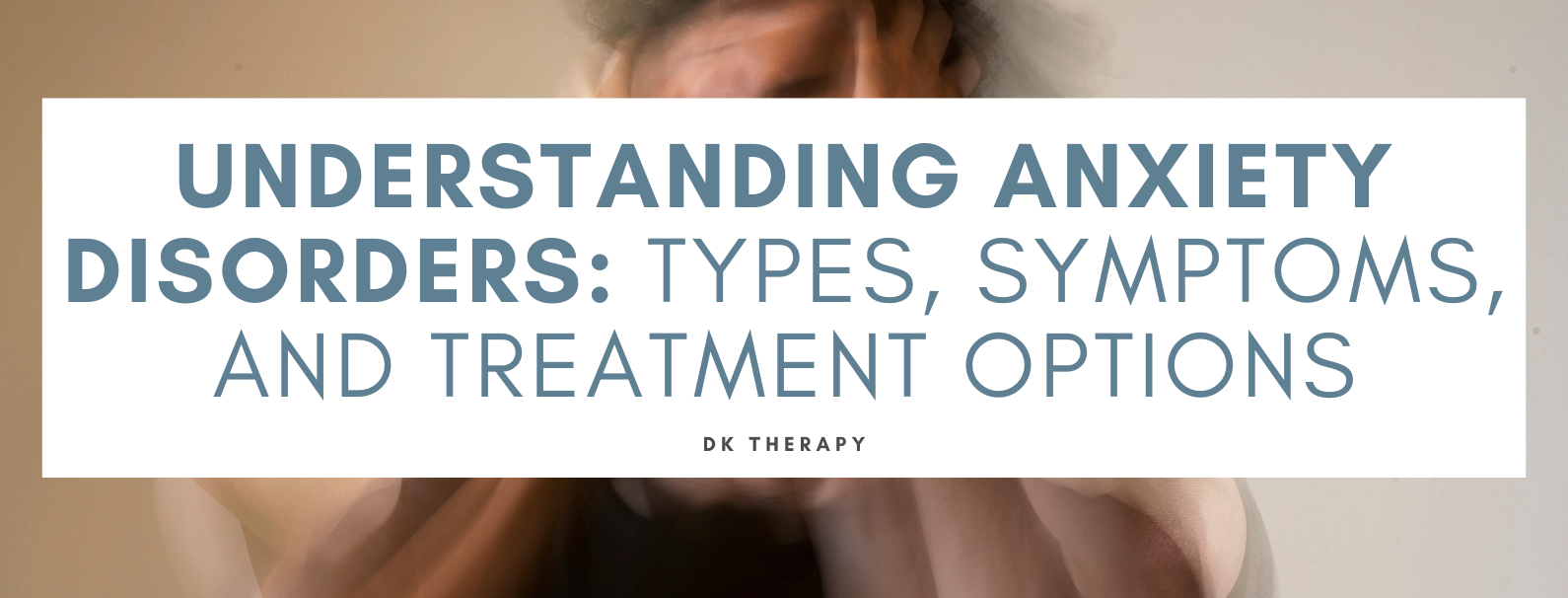
Most people experience anxiety at some point in their lives, but when the experience of anxiety gives way to a disorder, it becomes a detriment to one’s mental health. Let’s explore the various types of anxiety disorders a person can have, as well as common symptoms and treatment options associated with anxiety disorders.
Types of Anxiety Disorders
 Several unique types of anxiety disorders exist, but some of the most common include:
Several unique types of anxiety disorders exist, but some of the most common include:
- generalized anxiety disorder– excessive worry about activities and events, including one’s normal mundane routine
- panic disorder- repeated instances of intense anxiety and terror that reach a peak within minutes of onset, leading to panic attacks
- phobias- major anxiety when exposed to specific objects or situations (for example, agoraphobia, which is the fear of places and situations that may cause an individual to feel trapped or helpless)
- social anxiety disorder- high levels of anxiety involving social situations and the fear of being judged or viewed negatively by others
- separation anxiety disorder- a childhood disorder characterized by intense anxiety when separated from one’s parents or parental figures
While each disorder affects an individual differently, the similarity between each of these mental health conditions is the triggering of anxiety.
Symptoms of Anxiety Disorders
In general, anxiety disorders can produce a number of unpleasant symptoms, including the following:
- Feelings of nervousness, restlessness, or tension
- The sense of impending danger
- Trouble concentrating
- Sleep disturbances
- Increased heart rate
- Sweating
- Gastrointestinal upsets
- Weakness or tiredness
- Trembling
- Rapid breathing
- Difficulty controlling one’s worry
- The desire to avoid anxiety triggers
Treatment Options for Anxiety Disorders
When it comes to the treatment and management of anxiety disorders, there are two main solutions, including medication and therapeutic options.
When a person is medicated to treat an anxiety disorder, he or she may be prescribed anti-anxiety medications like benzodiazepines, which help to decrease the anxiety and panic someone with an anxiety disorder experiences. Antidepressants can also be helpful in treating anxiety disorders, as they may improve an individual’s mood and reduce stress levels. Finally, beta-blockers may be prescribed to an individual with an anxiety disorder to reduce the physical symptoms that come with the disorder, such as rapid heart rate and trembling.
As for therapeutic options, individuals with anxiety disorders may undergo cognitive behavioral therapy. Cognitive behavioral therapy is useful when it comes to helping an individual recognize behaviors and patterns of thought that lead to negative and anxiety-inducing outcomes. This therapy type then teaches the individual to make changes to his or her habits in order to reduce instances of anxiety.
Medication and therapy can be used hand-in-hand as dual treatment options, or they can be applied separately, depending on the patient and provider’s treatment plan. In addition to these treatment options, mental health providers may also suggest meditation and other at-home activities that can be done to still the mind and relieve anxiety symptoms as they arise.
Understanding anxiety disorders is a crucial step towards empathy and support. From being aware of the varied manifestations to personalized treatment options, this short article aims to shed light on what anxiety disorders are, how they affect an individual’s well-being, and how those affected can pursue greater mental health.
If you’re living with anxiety and you feel that therapy would be beneficial, please reach out to DK Therapy to schedule an appointment. One of our experienced counselors will help assess your needs and get you on the road to recovery.




